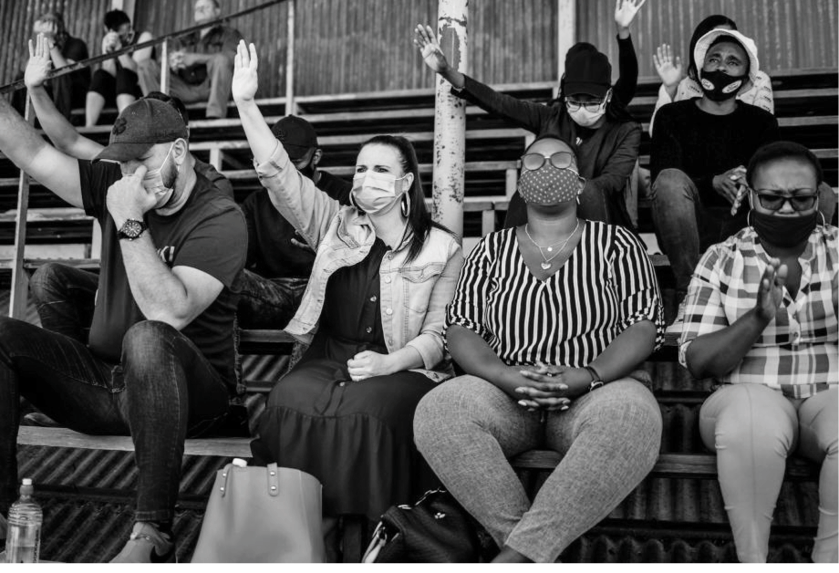Religious community vital in the fight against COVID-19
Religious community vital in the fight against COVID-19 SiboneloRecently many South Africans of faith have joined others across the world in important religious observances. Members of the Jewish faith celebrated Pesach, Christians observed Easter and Muslims will soon be observing the holy month of Ramadan. 
For the second year, these occasions have been marked in the midst of a devastating global pandemic that has cost the lives of more than 2.5 million people across the world.
Faith-based organisations have been vital to our national response to the disease, not only providing spiritual comfort and guidance, but also by caring for those most vulnerable to the effects of the pandemic, including through the provision of food, shelter and other social services.
Religion plays an important role in the lives of millions of South Africans, and congregational worship forms a vital part of their religious practice.
Being able to gather for religious services is also a welcome respite from a period of great hardship for individuals, families and communities.
It is understandable that after more than a year of labouring under restrictions on religious gatherings that the faith community are keen for a return to a semblance of normality.
In recognition of the importance of congregational worship to the lives of our people, government has been engaging with the faith community.
Leaders of the faith community understand and appreciate the very real danger of a new wave of COVID-19 infections. Since the outbreak of the pandemic, religious organisations have taken proactive and positive measures to limit the spread of the disease among worshippers.
Another important factor is that during the various alert levels, religious organisations have incurred substantial financial losses that threaten their sustainability. As government we remain committed to working with the faith community to find workable solutions.
At the same time, public health and safety must be our paramount consideration.
The religious community has shown innovation and initiative in the holding of worship at a time when there was a great deal of uncertainty over the trajectory of the pandemic.
Congregational services were held online and worshippers were encouraged to pray in their homes instead of attending services. This greatly aided the national effort to contain the spread of the disease.
Religious leaders played a pivotal role in encouraging public adherence to health measures around important customary and cultural rituals like burials.
By equal measure, our people have demonstrated their commitment to adhering to public health protocols and to social distancing. And they correctly appreciate that they must continue to avoid large gatherings.
We are now at a time where precaution is needed above all. The Coronavirus pandemic has not been eliminated, either in our own country or around the world. The threat of a third wave is real and ever-present.
International experience has taught us that we should not tempt fate. Many countries have eased restrictions, only for there to be resurgences, necessitating the imposition of even harsher restrictions.
Large gatherings, whether religious or otherwise, have the potential to spread the virus, despite the application of measures around social distancing and sanitising.
Millions of South Africans have been observing an important tenet of their faith. In a country that enshrines the right to religious freedom, all effort must be made to support our people in the exercise of this right. And in exercising this right, we need to make sure that we do not place the rights or the lives of others at risk.
This is a principle that the religious leaders I met with fully support and appreciate. They understand the responsibility of all people of faith – indeed of all South Africans – to observe the practical measures put in place to protect people’s health and save lives.
For more than a year, we have worked together as a society to contain this pandemic. Now as we work to overcome it, we need to reaffirm our shared determination to act responsibly and cautiously.
In doing so, we will be giving practical effect to the universal messages of hope, salvation, freedom and solidarity that will be spoken of in the churches, synagogues, mosques and homes of our land in the days and weeks ahead.